2021-9-13
Tina Xie /photo by courtesy of Huang Yuwen /tr. by Phil Newell
中文版
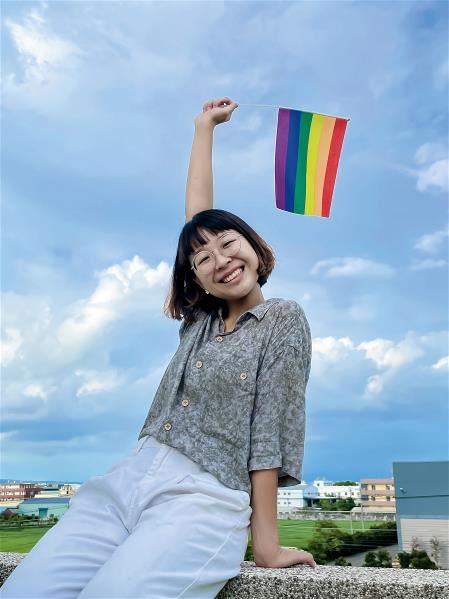
“If not me, who? If not now, when?” These words were spoken by British actress and UN Women Goodwill Ambassador Emma Watson at a United Nations HeForShe gender equality event.
Huang Yuwen, who in 2018 was an International Youth Ambassador for Taiwan’s Ministry of Foreign Affairs, still gets excited talking about Watson’s address. In high school Huang began continually searching for her place in the world, and Watson’s words made her think: “I could be a starting point for change.” Seeing the complexity of the international situation, she decided to study in the Department of International Affairs at Wenzao Ursuline University of Languages, where she actively participated in foreign affairs activities. Recently she has also joined Design for Change, Taiwan, an educational institution that aims to train the next generation in design thinking and problem-solving.
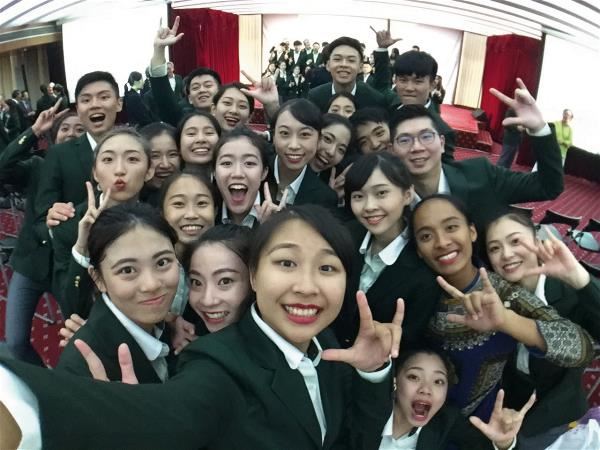
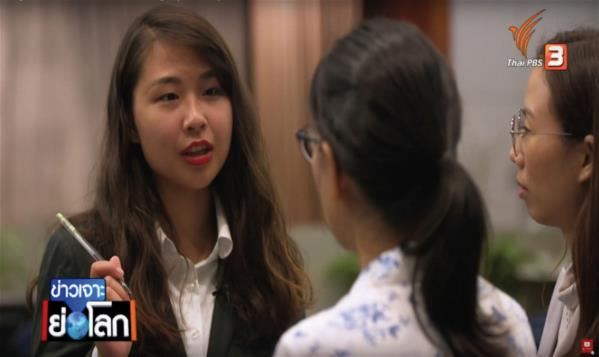
A dauntless youth ambassador
In university, Huang Yuwen took part in many model UNs and often represented her school in greeting guests such as legislators from the US and Canada. The guests freely shared their experiences, while Huang and her classmates proudly and confidently told them about Taiwan’s international contributions.
Huang recalls: “In 2016 Tsai Ing-wen became Taiwan’s first woman president, and at the time we told guests about Taiwan’s achievements in terms of female participation in politics. At that time a majority of the student representatives were women, which was a great example of what we were talking about.”
Huang applied to the Ministry of Foreign Affairs’ International Youth Ambassadors Exchange Program in her freshman year, but didn’t understand her own strengths well enough to make a good presentation to the judges, and was not accepted. Two years later she tried again. “This time I made my hobby of photography the theme, introducing Taiwanese cities that matter to me.”
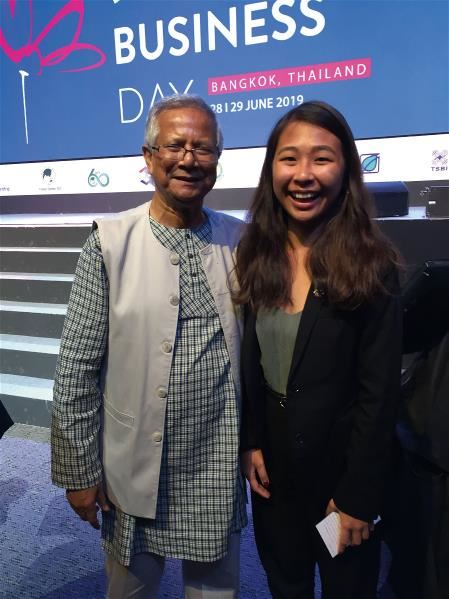
Thailand: Her second home
Before visiting Thailand as a youth ambassador, Huang interned for two months at the Yunus Social Business Centre in Bangkok. Having studied migration and multiculturalism, after arriving in Thailand she discovered that it is a multi-ethnic society. Therefore she decided to do a project on “multicultural interactions and understanding in Thailand” by doing interviews at some cultural spaces.
Of these, the one that most impressed her was The Home BKK. The owner was a flamenco dancer from the Dominican Republic who had lived in Thailand for 16 years. Originally he only wanted to teach dance, but more and more local people and foreign residents came to his studio to enjoy the atmosphere of cultural interaction, forcing him to relocate and expand.
“Art has no linguistic or geographic barriers.” Huang says that the owner bought and refurbished an old house, and invited other artists to move in. People of different cultural backgrounds form linkages there through artistic work.
After Huang completed her interviews in Thailand, she and some of the interviewees remained friends, sharing Facebook posts on life in their respective countries. When she learned of the beginning of the Thai student movement, she joined in actions in Taiwan in its support. Before this, she had worked to encourage young Taiwanese people to return to their hometowns to vote in the 2020 elections and marched in support of the legalization of same-sex marriage, embodying Taiwan’s democratic values with action.
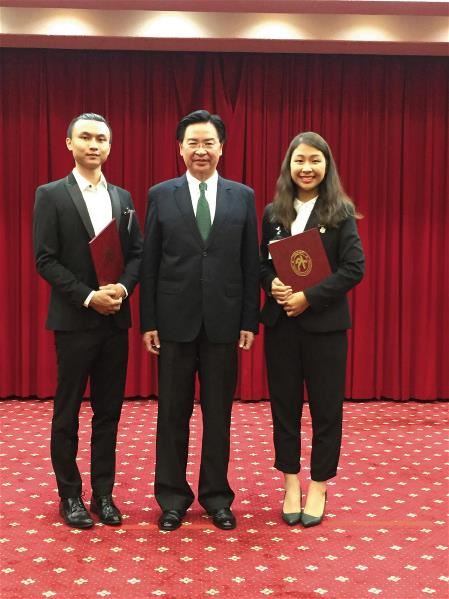
First know yourself
On her Facebook page, Huang routinely shares things she has learned about Taiwan’s history in documentaries and films, for example discussing the importance of transitional justice after watching Super Citizen Ko and a documentary on the February 28 Incident. A lover of music festivals, she also often shares the pride that local indie music makes her feel in being Taiwanese.
“Music has an amazing power to bring like-minded people together.” Therefore, when working for Tsai Ing-wen’s campaign in her hometown, Changhua, she organized the “Pass Pass Festival” to replace traditional campaign events and change young people’s views on the election, attracting them to return home to vote.
“You must first know yourself before you can make friends with the world.” Huang feels that diplomacy can take any form, but one must first find one’s own area of expertise and passion.
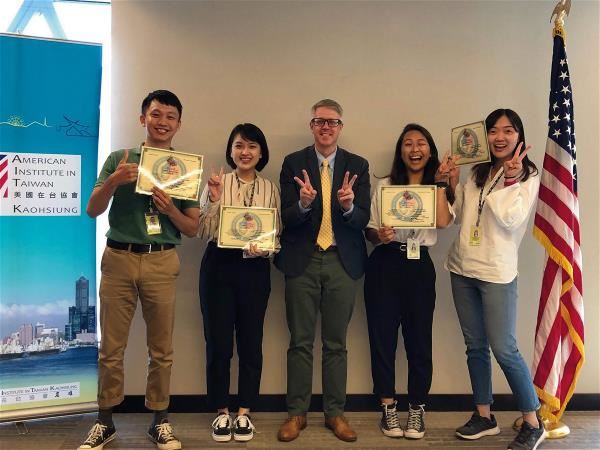
Change through education
Huang has done numerous internships related to politics, and discovered that many problems are systemic in nature and can only be resolved through education. Therefore she joined Design for Change, Taiwan (DFC Taiwan) to teach children problem-solving through design thinking.
When in university Huang hosted foreign visitors, attended many conferences, and did an internship at the Kaohsiung Branch Office of the American Institute in Taiwan, and through these discovered she has a knack for public relations. Therefore, since joining DFC Taiwan she has been head of the public affairs section.
Huang’s role at DFC is to express the organization’s brand values and ideals. Besides the daily task of staying in touch with the media, she is also responsible for planning social media operations and visual design. She hopes that “through unification of visuals the brand will have a uniform tone.”
DFC is an international educational non-profit originating at the Riverside School in India. Students are taught to solve life problems through four steps: feel, imagine, do, and share. In the process they learn empathy, confidence, creativity, and activism. As well as holding competitions (called “challenges”) that enable the children to apply the four steps, DFC also offers a support system for teachers so they have a place to share and discuss experiences and find appropriate pedagogical methods.
During the Covid-19 pandemic, DFC has held the awards ceremonies for its challenges online, allowing even more people to see the spirit of DFC. Primary-school children were not at all hesitant in front of the videoconferencing cameras, articulately laying out their feelings about problems and their ideas and methods for solving them. Huang found the student presentations thrilling: “Our kids all shine!”
Some schools competing in DFC challenges build on previous results and propose new ideas. Huang cites the example of Yi-Chang Primary School in Hualien County, whose initial proposal for marine environmental conservation through beach cleanups turned out not to be very effective, so the next time around they proposed community-based marine environmental education. Some ideas turn into local activities, and gradually have a positive impact on the environment.
There’s more to Huang Yuwen than meets the eye, and she is impacting the world in her own way. Asked about the prestigious title of youth ambassador, she feels grateful but also emphasizes: “We are not some group of incredibly super people. We are just people who see problems and are willing to speak out.”
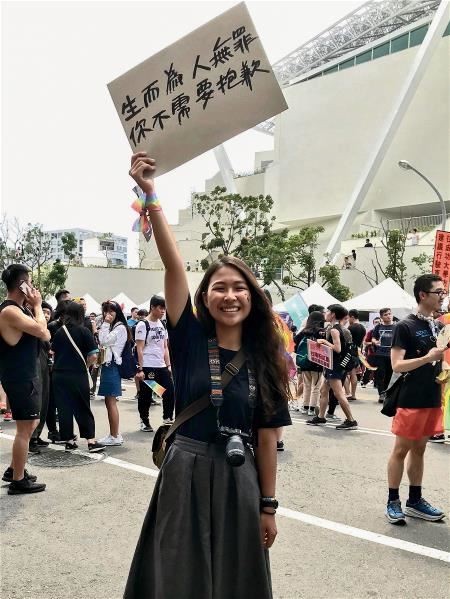
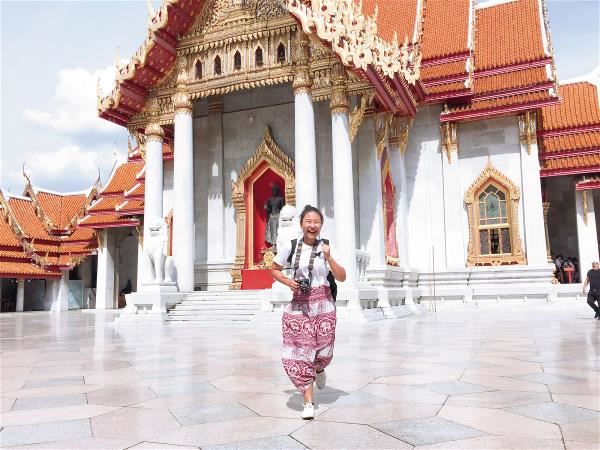
Article and photos courtesy of Taiwan Panorama September 2021




